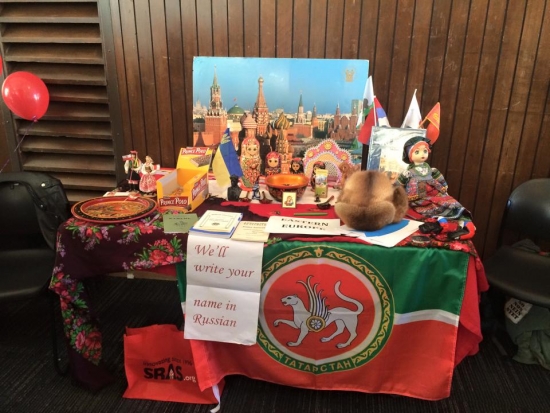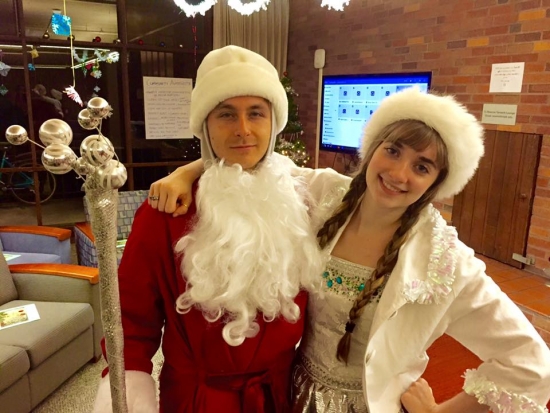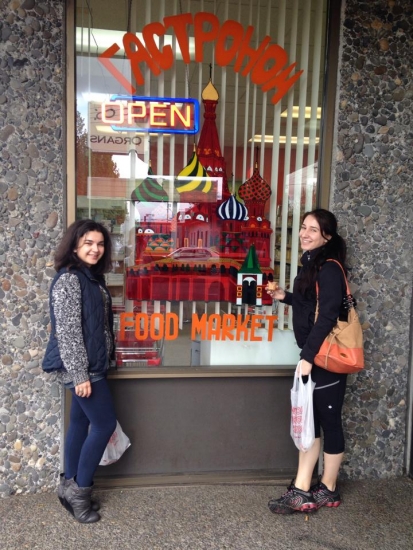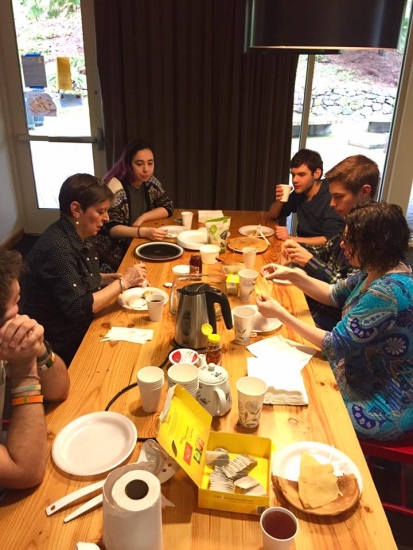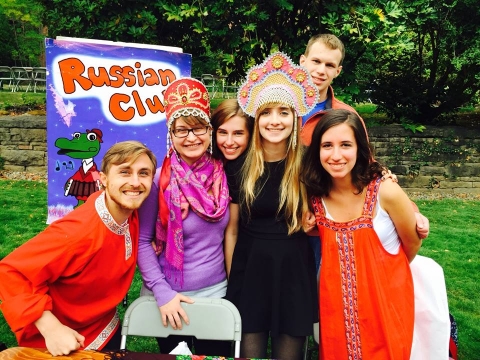- Ru
- En
- Fr
- Cn
Learning Russian in the U.S.: Russian Club at Lewis and Clark College in Portland, Oregon
Every Thursday at 5 pm at the International Department our Fulbright teaching assistant from the USA, Sarah (Scout) Mills, organizes the English club for Russian and international students. She told the Intarntional Department that she had a similar club during her study at Lewis and Clark College, but it was called Russian club. She would like to share her story about Russian club with you as well.
Many students at USTU have asked me how I was able to learn Russian so well in four years. I always tell them that practice and motivation are the main reasons, but another important factor was the strength of my university’s Russian department.
Lewis and Clark College (LC) is a small university in Portland, Oregon with a strong international focus. All students are required to take at least one foreign language for two years and the majority of students study abroad for at least one semester. Our Russian department is very small, but that’s one of the reasons I was so successful with my studies: my professors got to know me and my interests very well and could assist me with scholarship applications and academic work. I fell in love with the Russian language from day 1, and throughout my college experience I was basically a spokesperson for the department. I had the opportunity to teach and tutor beginning students for three years, which solidified my knowledge of Russian grammar and gave me the teaching experience I needed for my Fulbright grant. I participated in many events to recruit new students and convince them that Russian wasn’t such a difficult language. Many Americans are afraid to study Russian because of the alphabet, but I always tell them that the alphabet is the easiest part.
The family environment in our department was ideal not just for language study, but for cultural study, which is equally as important as learning verbs and cases. Every year, Lewis and Clark gets a new Fulbright assistant from Russia who teaches their own class and is in charge of the Russian club, in the same way that I came to Russia to teach classes and head the USTU English Club. Russian club at LC consists of many different activities and events designed to broaden students’ knowledge of Russian culture and give them an opportunity to practice their language so they are better prepared to study abroad in Russia or simply develop a respect for culture that encourages mutual understanding between our countries.
Professor Rebecca Pyatkevich believes that Russian club is a crucial part of the academic program: “It brings the culture alive in a way that's hard to do in the classroom…Eating Russian food; making it; talking about its traditions -- all of it serves as a concrete manifestation and (literally) taste and experience of cultural difference.”
Many people who I met in Russia during my various trips have been amazed that I was already familiar with traditional Russian foods, music, films, and small details of Russian culture. It made adapting to living in a foreign country much easier than if I had only known the language. What is more, it allowed me to develop a love for Russia that surpassed my academic knowledge of it. I was president of the Russian club during my second year of university, and many other talented and engaged students have done similar work simply because they are invested in the department and learning language.
According to Professor Pyatkevich, the club is also a good way to build community. “Learning a new language is a hard task, and developing friendships and camaraderie helps when you're in the trenches trying to master, say, the genitive plural.”
